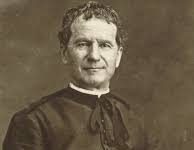For what should Senator Diane Feinstein, who died recently at the advanced age of 91 after a long – some might say far too long – career in politics, be remembered? Most of us will enter eternity, recalled only by family and a circle of friends, our opinions forgotten in the dust. But the powerful and influential, who shape our laws and our mores, have their memorials. Father Raymond de Souza, in a recent, and rather disconcerting, encomium, says that Mrs. Feinstein ‘should be remembered for her epic battle against CIA torture‘.
Hmm. I would gently recall to the good father’s memory Senator Feinstein’s even more ‘epic battle’ in support of homosexual marriage and, even worse, partial-birth abortion. She was one of a very small minority who voted against DOMA – the Defense Marriage Act – back in 1996. Those were saner days, when a younger Joe Biden – still with some grasp of his marbles and his Catechism – promised that America would never have ‘same-sex marriage’. Even he realized, back then, that one could not have any semblance of marital union based on unnatural and immoral relation, and that such could never be recognized by any law, natural or civil, sacramental or ecclesiastical.
In 2003, Senator Feinstein also voted against the Partial Birth Abortion Ban Act, which would have prohibited the murder of the unborn at least in the last stages of pregnancy, when a fully viable baby is dispatched by horrific and barbaric means that are best left undescribed here.
Yet the Senator had a soft heart for suspected terrorists and their rights (as well as animals, but that’s another story). So a word on ‘torture’.
Much depends on what we mean by that term. The Church, interpreting natural law, has never condemned coercion, even such as may be used in ‘enhanced interrogation’, some aspects of which may be necessary at times for the contumaciously recalcitrant. At the low end of this spectrum, ponder a ten-year old who hides the car keys ten minutes before Mass. Dad, or Mum, will have to ‘persuade’ him to give them up by means that the child will perceive as, well, coercive. At the more grave end, what of a man who knows where your kidnaped daughter is being kept? How much Liam Neeson would you be willing to go?
Of course, there is a level at which coercion would be deemed excessive and immoral – including mutilation and lasting damage, physical or psychological – and it seems the CIA, which has always been slightly unhinged, engaged in such. On that score, I agree that torture is immoral.
But forceful persuasion, especially when grave matters are at stake? Are we supposed to tickle them in the comfy chair, a la Monty Python?
The British comics were onto something, for more recent psychological studies have demonstrated that coercion often does not work all that well – and I agree. The best way to get someone to talk, is simply to talk to them, over extended periods, and often they will eventually spill the beans.
Whatever Senator Feinstien may have done for prisoners at Guantanamo and elsewhere, her overall legacy – and we may add her climate-change zealotry, her coziness with the brutal Chinese Communist state, which has no problem with torture, the suspicion of having her personal chauffeur being a communist plant, and her ominous comment to Amy Barrett that ‘the dogma lives loudly within you’ – is a grave and abiding scandal, and should be remembered as such.
Of course, we pray that somehow, in those last days and hours, Diane Feinstein realized her errors, and found and accepted the mercy of God. There is hope for every soul.











